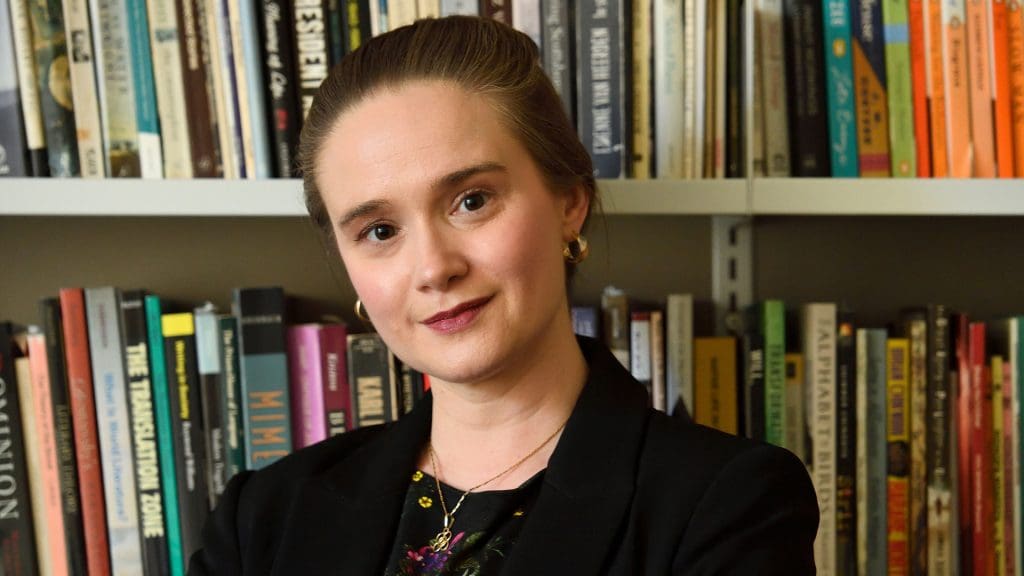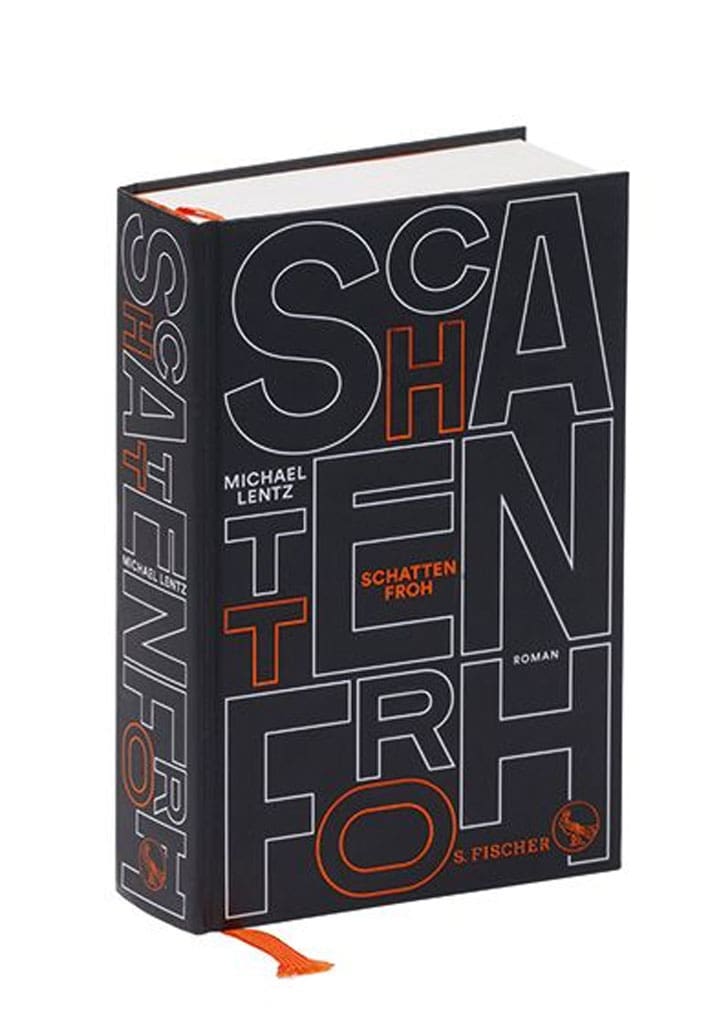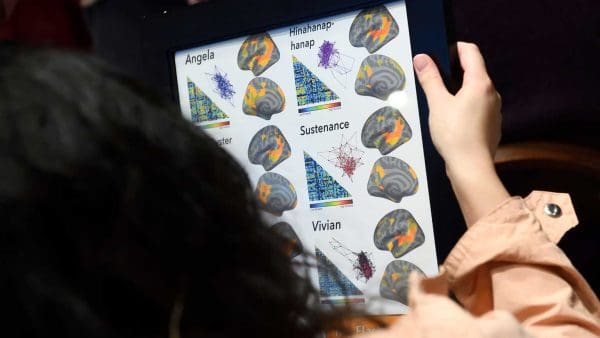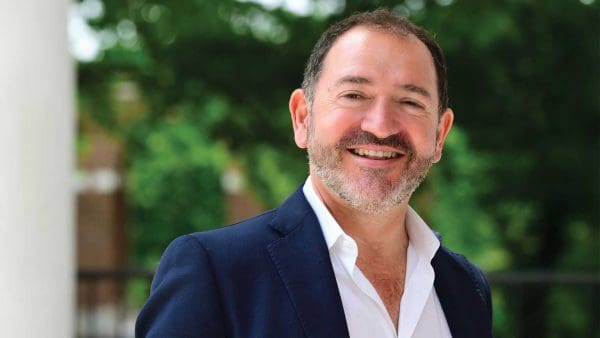

In the 2019 novel Schattenfroh, as narrator Nobody contemplates history, philosophy, religion, and art, his thoughts are forcibly transcribed to become the book itself. Nobody’s captor, Schattenfroh (shadow-joy), wants to use these ideas about the ideals and tragedies of humanity as the foundational text underlying a new society.
It’s somewhat fitting, then, that the novel’s 2025 English translation is the first tangible result of a new partnership between Johns Hopkins’ Alexander Grass Humanities Institute (AGHI)—which brings together the Krieger School’s humanities departments and other university efforts centered around humanistic studies—and Deep Vellum, a nonprofit press dedicated to literature in translation and the largest publisher of translated literature in the U.S.
“Johns Hopkins has been foundational for the way that the American humanities in particular are configured,” says AGHI director Jeanne-Marie Jackson. “Having full engagement in the actual production of, and then publicization around, major literary texts is the next frontier.”
The partnership, which began July 1, means that the AGHI will support the production, publication, and promotion of one work of literary translation each year. It will also host a suite of campus events around the work, including a mini-residency for the translator with classroom visits, book launch events, and workshops for graduate students and faculty, and publication of two exclusive excerpts from the text in The Hopkins Review.
How universities and nonprofits collaborate
The partnership steps in where a recently cut National Endowment for the Arts grant to Deep Vellum left off, but the arrangement goes well beyond finances, says Jackson, professor in the Department of English. It’s a model, she says, for how universities and nonprofit publishers can collaborate to choose works that both complement faculty expertise and experience, and offer substantive material for the classroom and public events.
Translation offers a particular angle into literature, Jackson adds. It may not be showcased as often as novelists or poets are, but she considers it the “engine room” of world literature. It’s the rigorous, granular territory where content and linguistic expertise blur, where the sentence level of a text entwines with its position within global literature.
“Translation is the behind-the-scenes, nitty-gritty work that makes literature tick,” Jackson says. “It gets the whole continuum of literary and—more broadly—cultural production onto the same page, quite literally.”
Johns Hopkins has been a longtime leader in defining the American humanities, especially the literary and theoretical humanities, Jackson says. And as AGHI ushers in this new era with Deep Vellum, Schattenfroh sets the tone Jackson is looking for: It draws on the deep expertise of the Department of Modern Languages and Literatures’ German program in 19th century German literature, religious history, and esoteric faith practices—and it’s also a buzzy powerhouse of a novel, she says.
Growing AGHI
As it enters its second decade, beyond the Deep Vellum partnership, AGHI has added something called the Yearly Conversation to its programming, which also includes Blast Courses in the Humanities, Faculty Fellowship, BMA Humanities Internships, and the Dean’s Undergraduate Research Awards. With a different theme each year—this year’s is the history and purpose of the liberal university—the Yearly Conversation will host roundtables with Hopkins faculty, book events with authors from elsewhere, and a capstone event. In the future, Jackson hopes to add drama and theater to the mix of offerings.
Schattenfroh translator Max Lawton will be in residence at Hopkins November 12-13 and will participate in a series of events on and off campus. Visit the AGHI website for more information.




